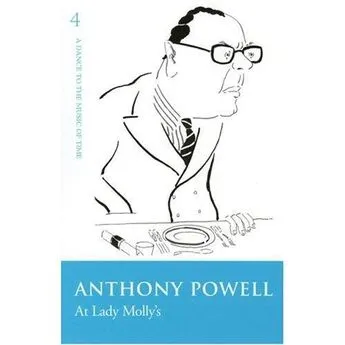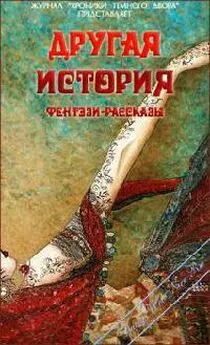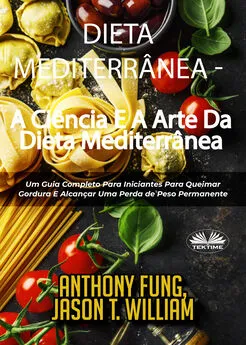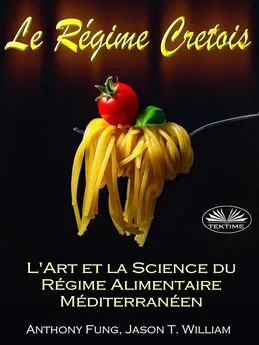Anthony Powell - At Lady Mollys
- Название:At Lady Mollys
- Автор:
- Жанр:
- Издательство:неизвестно
- Год:2005
- ISBN:нет данных
- Рейтинг:
- Избранное:Добавить в избранное
-
Отзывы:
-
Ваша оценка:
Anthony Powell - At Lady Mollys краткое содержание
A Dance to the Music of Time — his brilliant 12-novel sequence, which chronicles the lives of over three hundred characters, is a unique evocation of life in twentieth-century England.
The novels follow Nicholas Jenkins, Kenneth Widmerpool and others, as they negotiate the intellectual, cultural and social hurdles that stand between them and the “Acceptance World.”
At Lady Mollys - читать онлайн бесплатно полную версию (весь текст целиком)
Интервал:
Закладка:
Although, by then, I had often visited the house in Hyde Park Gardens, she and I had not met on those earlier occasions, chiefly because Lady Warminster’s health kept her for weeks at a time confined to her room. Views differed as to the extent to which hypochondria governed her life, some alleging that no one enjoyed better health, others taking her side in insisting that, delicate since childhood, she bore her ailments courageously. Smaller, older, quieter in manner and more handsome than Molly Jeavons, she was also much more awe-inspiring. Something of the witch haunted her delicate, aquiline features and transparent ivory skin: a calm, autumnal beauty that did not at all mask the amused, malicious, almost insane light that glinted all the time in her infinitely pale blue eyes. When young, she must have been very good looking indeed.
Unlike her sister, who was entirely detached from intellectual interests of any sort, Lady Warminster lived largely in a world of the imagination. Her house, a complete contrast to the Jeavonses’, reflected the more ordered side of her nature, surprising by the conventionality of its taste and air of stylised repose; at least until the rooms given over to her stepchildren were reached. These quiet, rich, rather too heavy decorations and furniture were deceptive. Little about the house could be thought quiet, or conventional, when closely examined. Perhaps, after all, when closely examined, no sort of individual life can truly be so labelled. However, against this formal background, when her health allowed, Lady Warminster wrote her books, historical studies of the dominating women of the past: Catherine the Great: Christina of Sweden: Sarah, Duchess of Marlborough: volumes rarely mentioned in the press, though usually kindly treated by such critics as noticed them, on account of their engaging impetuosity of style and complete lack of pretension to any serious scholarship.
This literary preoccupation with feminine authority had come to Katherine Warminster, so it appeared, only after her second widowhood. Like her sister, Molly, she had no child by either husband, the first of whom had been one of those ‘well-born’ City men for whom Peter Templer used to express such aversion. He had been a fairly successful stockbroker, fond of hunting and shooting, a man, so far as could be judged, with no salient characteristic. His wife had spent most of her days with friends who belonged to a world quite other than his own; latterly submitting to him in their marriage only to the extent of living in the country, where she was bored to death. She can have seen little more of Lord Warminster, when married to him, much of whose time was spent abroad unaccompanied by his wife, fishing in Iceland or pig-sticking in Bengal. This status of having twice married, without, so it might seem, great attachment to either husband, perhaps gave Lady Warminster the mysterious, witch-like quality she dispensed so pervasively about her.
The second marriage was said — quite unexpectedly — to have improved, on the whole, Erridge’s relations with his father, with whom, without any open quarrel, he had never been on good terms. Lord Warminster had accepted his son’s idiosyncrasies stoically, together with anything else of which he disapproved in his children, attributing everything to their mother’s Alford blood. The rest of the Tolland brothers and sisters had lived — Norah was an exception — amicably with their stepmother: the younger ones entirely brought up by her. Lady Warminster, eccentric herself, showed a decent respect for eccentricity. She had no wish to interfere with other people, her stepchildren or anyone else, provided her own convenience was not threatened, so that the Tollands were left largely to their own devices. Life at Hyde Park Gardens might be ruthless, but it was played out on a reasonably practical basis, in which every man was for himself and no quarter was given; while at the same time a curtain of relatively good humour was usually allowed to cloak an inexorable recognition of life’s inevitable severities.
I was fortunate enough already to have established myself to some small extent in Lady Warminster’s good graces by a book written a year or two before which she happened to have enjoyed, so that my own reception might have been a worse one. Even so, with a person of her sort that was not a matter upon which to presume. For a time we discussed affairs personal to Isobel and myself, and then, as soon as these could be politely, and quite kindly, dismissed, Lady Warminster gave a smile that showed plainly we should turn to more intriguing topics.
‘I think you are one of the few people, either in or out of the family, who have met Erridge lately,’ she said. ‘So that you must now tell me what you think about this trip of his to China.’
I assured her that I knew little or nothing of Erridge and his movements, but that the journey seemed a reasonable one for him to make in the light of his interests and way of life. I admitted that I had heard him discuss a visit to China.
‘I agree with you,’ she said. ‘Erridge is much too much by himself. He will not be alone on the voyage, I think, will he?’
That was not easy to answer. I did not wish, at this early stage in our relationship, to be detected telling, or, indeed, implying, a deliberate lie. I hoped equally to avoid revealing all that was known about Erridge and Mona, scanty as that might be. I said that I knew no details about the arrangements made by Erridge for his journey.
‘There are always plenty of people to talk to on boats,’ I suggested, with a sense of descending into banality of the most painful kind.
‘Of course,’ she said, as if that notion had never before been so well presented to her. ‘Do you like the sea?’
‘Not at all.’
‘Nor me,’ she said. ‘There is nothing I detest more than a sea voyage. But surely he is taking a secretary, or someone of that sort. I think he will. It will be so lonely otherwise. Especially as he is used to living by himself. You are never so lonely as when among a lot of people you do not know.’
It was impossible to tell whether the reference to ‘a secretary’ designated Mona, or some new figure in Erridge’s life; or was merelv a random shot to draw information.
‘I don’t think I know about a secretary.’
‘Perhaps I am mistaken. Someone may have said something cf the sort. What did you think of Thrubworth? Erridge does not take much interest in the house, I am afraid. Still less in the grounds.’
‘I commented on Thrubworth and its surroundings, again aware that banality had not been avoided. Lady War minster sighed. She moved her thin, pale hands, covered with a network of faint blue veins, lightly over the surface of a cushion.
‘You were staying in the neighbourhood, I think.’
‘Yes.’
‘Not, by any chance, with the writer, J. G. Quiggin?’
‘Yes — with J. G. Quiggin. I have known him a long time. Do you read his articles?’
‘I was so interested when I heard Erridge had him living in that cottage. I enjoy Mr. Quiggin’s reviews so much, even when I do not agree with them. They have not been appearing lately.’
‘No. I haven’t seen any of them lately.’
‘Is there a Mrs. Quiggin?’
‘Yes, she —’
‘But I do not know why I am asking you this, because Susan and Isobel told me how they met you and the Quiggins, both of them, at Thrubworth. She is a great beauty, is she not?’
‘I think she might certainly be called a great beauty.’
‘An actress?’
‘No, a model. But she thinks of going on the films.’
‘Does she? And what does Mr. Quiggin think about that?’
‘He seemed quite to like the idea.’
‘Did he?’ she said. ‘Did he? How strange.’
She paused for a moment.
‘I like his articles so much,’ she went on, after a few seconds. ‘He is such — such a broad-minded man. So few critics are broad-minded. You know I want to talk to you about the new book I am writing myself. Will you give me your advice about it?’
For the time being the subject of Erridge was abandoned. I was glad of that. Lady Warminster had either learnt enough, or decided that for the moment, whatever her available knowledge, she would pursue the matter no further. Instead she talked for a time about Frederica, explaining that she had been so named on account of a Tolland great- uncle, a secretary of legation in Prussia, who, sharing an interest in painting, had been on friendly terms with the Empress Frederick. That was how the name had come into the family; that explained why Alfred Tolland had wanted to hear Mrs. Conyers’s anecdote about the Empress, the night we had met at the Jeavonses’. Lady Warminster represented to a high degree that characteristic of her own generation that everything may be said, though nothing indecorous discussed openly. Layer upon layer of wrapping, box after box revealing in the Chinese manner yet another box, must conceal all doubtful secrets; only the discipline of infinite obliquity made it lawful to examine the seamy side of life. If these mysteries were observed everything might be contemplated: however unsavoury: however unspeakable. Afterwards, thinking over the interview when I had left the house, I knew something of what Alfred Tolland could feel after one of Molly Jeavons’s interrogations. Lady Warminster might be outwardly quieter than her sister: her capacity for teasing was no less highly developed. A long time later, when the subject of Erridge and Mona had become a matter of common talk at the Jeavonses’—gossip which she must have known from her sister, even though they met rather rarely — Lady Warminster continued to refer to the association under enigmatic pseudonyms.
This mannered obscurity of handling the delicate problems of family life had nothing in common with the method of Chips Lovell, who, as I have indicated, spent a good deal of his time at the Studio telling the other scriptwriters about his relations. It would be easy to imagine a community in which this habit might have given offence, since many people feel disquisitions of that kind in some manner to derogate their own importance, few being interested in how others live. Lovell’s material was presented with little or no editing, so it was for the listener to decide for himself whether the assumption in him of a working knowledge of the circles in which Lovell moved, or liked to think he moved, was complimentary or the reverse. Feingold, I think, considered the whole of these Lovell annals a fabrication from start to finish, a dream life legitimate in one exercising the calling of script-writer. He treated Lovell’s stories of duchesses and grand parties like brilliantly improvised accounts of a brush with gangsters or Red Indians, narrated as if such florid adventures had not been in the least imaginary. Hegarty, on the other hand, on the rare occasions when he listened to anything anyone else said, would immediately cap all Lovell’s anecdotes with stories of his own, sometimes sharp enough in their own way, but at the same time petrified into that strange, lifeless, formalised convention to illustrate human experience, particularly current among persons long associated with films. For my own part, I always enjoy hearing the details of other people’s lives, whether imaginary or not, so that I found this side of Lovell agreeable.
When someone repeatedly tells you stories about their relations, pictures begin at last to form in the mind, tinged always in colours used by the narrator; so that after listening day after day to Lovell’s recitals, I had become not only well versed in the role of each performer, but also involuntarily preoccupied with their individual behaviour. This concern for Lovell’s reladons had grown into something like a furtive interest in the comic strip of a daily paper, a habit not admitted to oneself. Lovell covered a good deal of ground. He was as ready to contemplate the doings of some distant cousins of his, whose only claim to fame seemed to be that they had emigrated to Vancouver and returned to live at Esher, as to recount the more splendid aspects of ancestral archives, for example, the epic of his mother’s elopement with his father at a moment when her parents supposed her all but engaged to his more eligible cousin.
Читать дальшеИнтервал:
Закладка:








